The collapse of deterrence between Iran and Israel
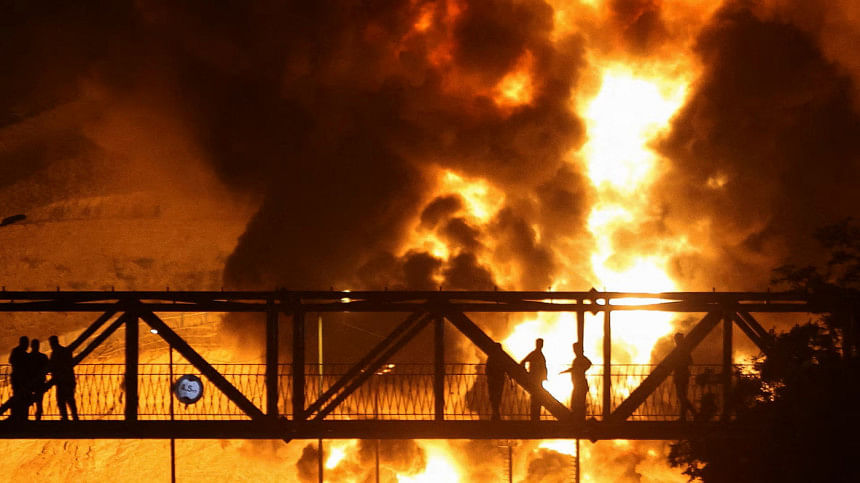
The latest escalation between Israel and Iran marks a perilous moment in West Asian geopolitics, where decades of shadow war have slipped into open confrontation. What was once fought through proxies, sabotage operations, cyber warfare, and veiled diplomacy is now turning into direct strikes between two of the region's most formidable powers. The consequences of this transformation are not just regional, they are global.
On Friday, Israel launched what it termed "Operation Rising Lion," targeting multiple Iranian military and nuclear infrastructure sites in Isfahan, Natanz, and Shiraz. The strikes were reportedly in response to an attempted Iranian drone and missile attack a week earlier, which Israel's defence forces intercepted with minimal casualties. But this tit-for-tat escalation belies a deeper, long-simmering confrontation: Israel's determination to prevent Iran from achieving nuclear weapons capability, and Iran's equally entrenched resolve to challenge Israeli hegemony in the region.
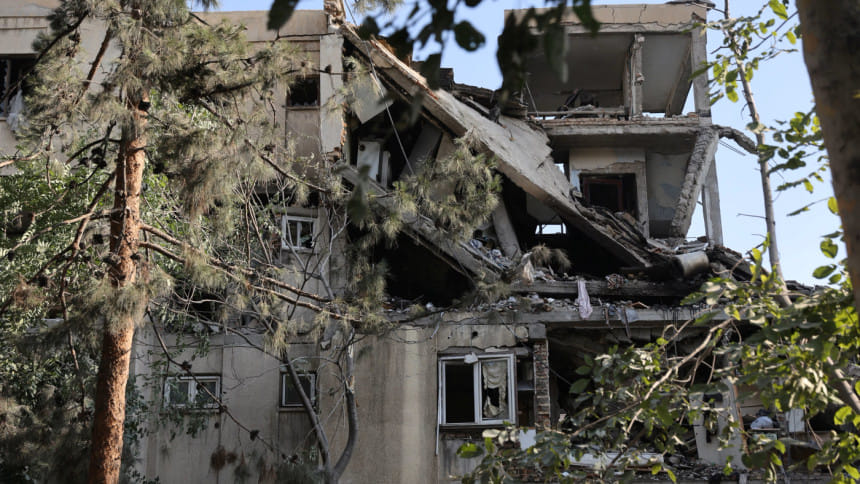
This is not merely a bilateral conflict. The power struggle between Israel and Iran is enmeshed in a web of international interests and ideological divides. The US, while publicly calling for de-escalation, continues to provide advanced defence systems and intelligence support to Israel. Russia, increasingly aligned with Iran following its pivot away from the West, finds itself in a delicate position, caught between opposing partners in its geopolitical balancing act. Meanwhile, China, dependent on Iranian oil and Israeli tech alike, remains diplomatically cautious, urging restraint but offering no decisive mediation.
For decades, the uneasy equilibrium was maintained by strategic ambiguity and third-party diplomacy. Iran backed Hezbollah in Lebanon and militias in Syria and Iraq, encircling Israel through non-state actors. Israel, in turn, conducted hundreds of airstrikes in Syria to curb Iranian entrenchment but refrained from overtly targeting Iranian soil—until now. This breach of the unwritten rules is profound. It signals a shift from deterrence through ambiguity to confrontation through clarity, from shadows to fire.
The nuclear dimension adds a chilling undertone to this shift. Iran's enrichment of uranium beyond 60 percent purity, while still below weapons-grade, has crossed every red line previously set by the International Atomic Energy Agency (IAEA). Israel's policy of pre-emptive action, rooted in the Begin Doctrine, has now morphed into a strategy of preventive war. But war, unlike doctrine, does not unfold predictably.
Civilian populations in both countries now live under real threat. In Tehran and Tel Aviv alike, the spectre of missile sirens, shelter drills, and cyber paralysis haunts daily life. And while much of the world remains distracted by other conflicts—Ukraine, Taiwan, Sudan—the potential for a full-scale regional war here is dangerously underestimated.
The Arab world, once reflexively aligned with the Palestinian cause, is split. The Abraham Accords brought normalisation between Israel and key Gulf states, including the UAE and Bahrain, who now view Iran as a more imminent threat than Israel. Saudi Arabia walks a tightrope, trying to manage regional leadership without alienating its emerging détente with Tehran. This geopolitical realignment has fragmented what was once a unified Arab front, creating new uncertainties in regional diplomacy.
For India, a key strategic partner of both Israel and Iran, the conflict presents an uncomfortable dilemma. While Delhi maintains defence and intelligence ties with Tel Aviv, it is also heavily dependent on Iranian energy routes and connectivity initiatives like Chabahar. More crucially, any escalation in the Strait of Hormuz threatens global oil supply chains—jeopardising the very foundation of India's energy security and inflation management. The conflict also poses risks to India's large diaspora in the region, particularly in the Gulf states, who could face economic fallout or political backlash.
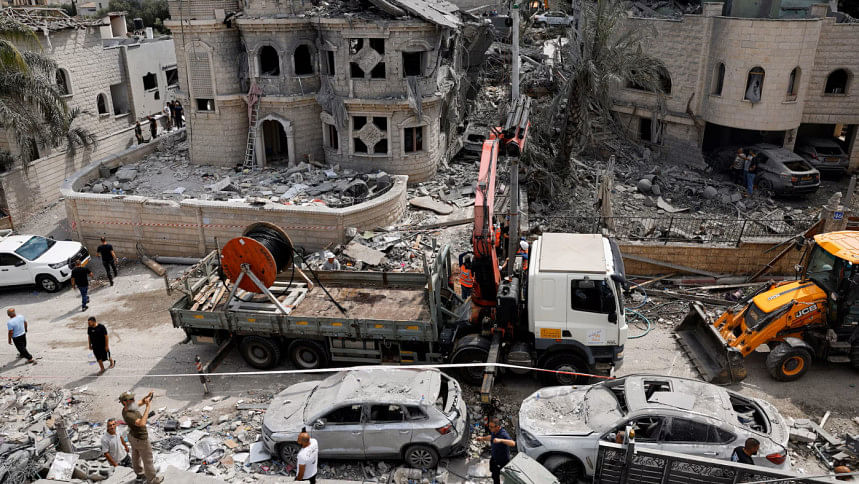
But perhaps the most troubling dimension of this unfolding crisis is the failure of diplomacy. The collapse of the Joint Comprehensive Plan of Action (JCPOA), due to American withdrawal under the Trump administration and Iran's subsequent defiance, left a dangerous vacuum. European mediators, once central to keeping dialogue alive, now appear sidelined by their own internal divisions and economic fragility. The UN, hamstrung by veto politics, watches from the margins as bombs fall.
What does the world do when the very frameworks designed to prevent war have failed? When rational actors become prisoners of their own red lines? The Israel-Iran conflict exposes the fragility of international norms in a multipolar era, where power is fragmented and restraint is rare.
It is not enough to call for de-escalation. The moment demands a return to diplomacy not as an afterthought but as an urgent priority. It requires courage from leadership—on both sides—to resist domestic hardliners and ideological absolutism. It demands from the international community a shift from perfunctory condemnations to active mediation, from arms deals to disarmament talks.
As cities across Israel and Iran brace for more strikes, and as the world teeters on yet another edge, it is worth remembering that history rarely judges nations only by their victories—but always by their choices. The choice now is between escalation and survival, between spectacle and sanity. The world must not look away.
Ashish Singh has finished his PhD coursework in political science from the NRU-HSE, Moscow, Russia. He previously studied at Oslo Metropolitan University, Norway, and TISS, Mumbai.
This article was first published by Countercurrents.org on June 15, 2025.
Views expressed in this article are the author's own.
Follow The Daily Star Opinion on Facebook for the latest opinions, commentaries and analyses by experts and professionals. To contribute your article or letter to The Daily Star Opinion, see our guidelines for submission.

 For all latest news, follow The Daily Star's Google News channel.
For all latest news, follow The Daily Star's Google News channel. 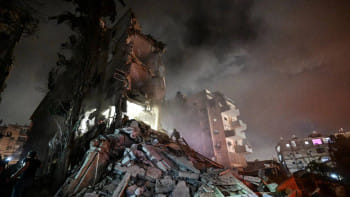
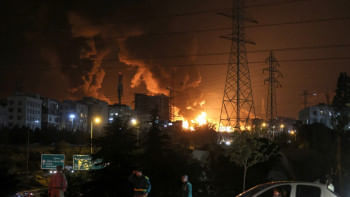
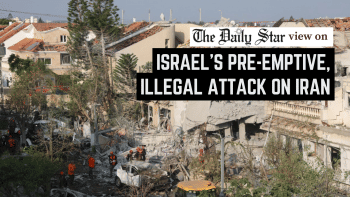


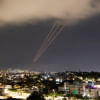

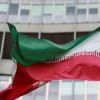
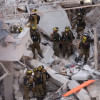

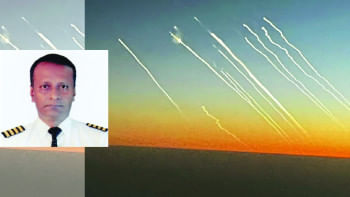
Comments